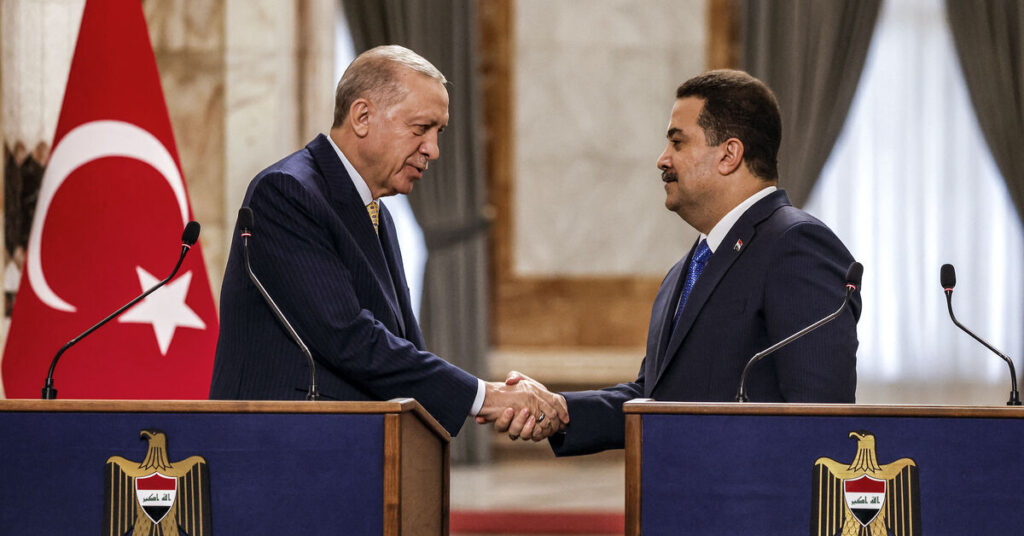ANKARA — Iraqi Prime Minister Mohammed Shia al-Sudani said in an interview published on Friday that the Iraqi government is committed to reconciliation between Ankara and Damascus.
“God willing, some steps will be taken in this regard soon,” Sudani told private Turkish television station HavelTurk through an interpreter, adding that he was in contact with Syrian President Bashar al-Assad and Turkish President Recep Tayyip Erdogan about reconciliation efforts.
Turkey has supported Syrian rebel groups fighting to topple Assad since the start of the Syrian civil war, but Erdogan publicly announced in 2022 that toppling Assad was no longer on his administration’s agenda in Syria. The first high-level direct talks between the two capitals, brokered by Russia, failed to produce any progress that same year.
“We are trying to establish a similar foundation for Syrian-Turkish reconciliation and dialogue,” Soudani said, recalling his country’s role in the Tehran-Riyadh normalization deal. Iraq hosted a series of talks between Iran and Saudi Arabia ahead of a landmark China-brokered agreement to resume diplomatic ties between the two regional powers in 2023.
Sudani became the first Iraqi prime minister in 13 years to visit Damascus in July last year after taking office in 2022. His remarks on Friday followed Erdogan’s visit to Baghdad last month, also his first visit in more than a decade. Earlier this month, the Iraqi prime minister held security talks in Baghdad with Syrian Interior Minister Mohammed al-Rahmon.
In an interview on Friday, Soudani said the security threat both his country and Iraq face from Syria comes from areas of Syria “that are not controlled by the Syrian government.”
Destroying the U.S.-allied Kurdish-led Syrian Democratic Forces (SDF) remains one of Turkey’s biggest security concerns, as Ankara equates the SDF with the outlawed Kurdistan Workers’ Party (PKK). Based in northern Iraq, the PKK has waged armed attacks against Ankara since 1984, seeking autonomy for Kurds in Turkey, and is considered a terrorist organization by Turkey, the United States and the European Union.
Iraq also designated the militant group a banned entity in April, as part of Turkey’s long-standing demand that Baghdad designate the PKK a terrorist organization. Turkish forces maintain more than 100 bases in northern Iraq as part of their fight against the militant group.
The SDF, meanwhile, is a key ally in the US-led international coalition in the fight against ISIS. Turkey’s failed attempts to persuade the US to end its alliance with the SDF have pushed it closer to Russia and Iran, the Syrian regime’s main backers.
The main objective of fruitless face-to-face talks between Turkish, Syrian and Russian officials in 2022 was to eradicate the Kurdish-led autonomous administration in northern Syria. Earlier this week, Erdogan reiterated Turkish threats to the region. The talks fell apart after Damascus pressed for Turkish troops to withdraw from Syria.
Turkey and Turkish-backed Sunni rebels control large swaths of territory in northern Syria. Turkish forces launched five ground incursions into Syria between 2016 and 2020 — four against the SDF and one against ISIS — and regularly carry out airstrikes in SDF-controlled areas.


